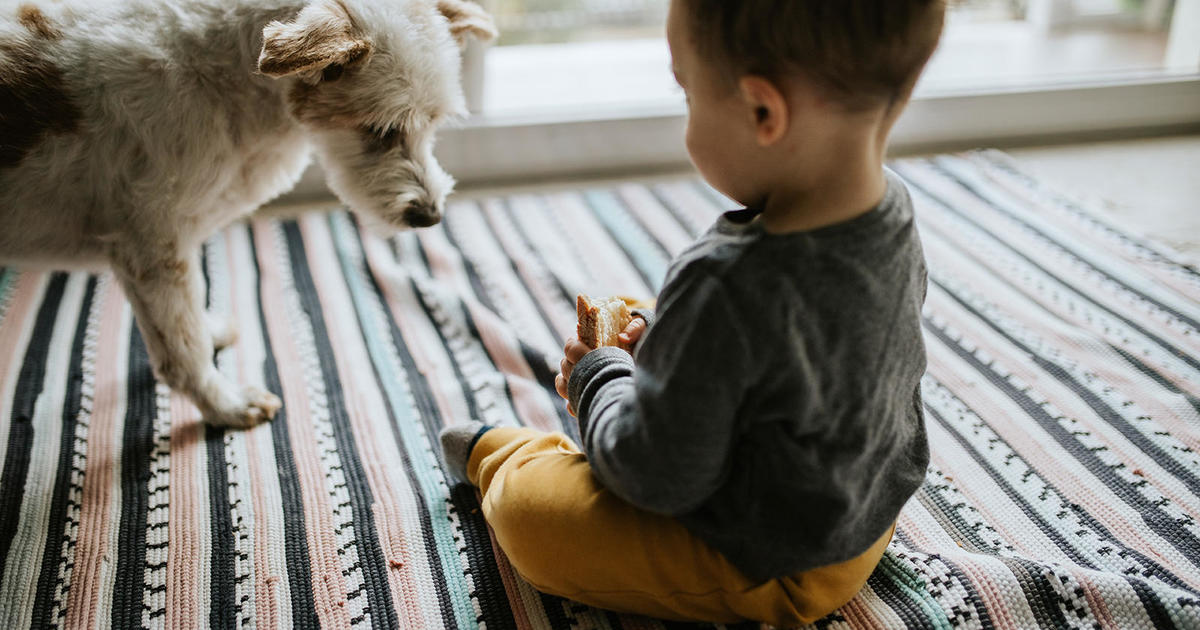Youngsters who stay with cats or canine in the course of fetal improvement and early infancy could be less likely than other little ones to develop foods allergy symptoms, in accordance to a new analyze.
The study, revealed Wednesday in the journal PLOS Just one, analyzed knowledge from more than 65,000 youngsters from Japan. It found that kids uncovered to cats or indoor canine experienced a 13% to 16% reduced threat of all food items allergies as opposed with babies in pet-free households.
“Our findings advise that publicity to puppies and cats may possibly be advantageous against the development of selected foods allergic reactions, thus alleviating problems about pet holding and decreasing the load of food allergic reactions,” the authors wrote.
The study located that children exposed to cats have been less probably to build egg, wheat and soybean allergies, when these exposed to puppies had been much less probably to have egg, milk and nut allergic reactions.
While there was no association in between turtles and birds and foodstuff allergy symptoms, hamster exposure throughout fetal enhancement was connected with practically twice the hazard of nut allergy symptoms. The authors speculate that nuts that hamsters consume may well sensitize infants through physical get hold of or dwelling dust.
The correct mechanism remains unclear, but industry experts say pet publicity may strengthen an infant’s intestine microbiome, both specifically or indirectly nevertheless modifications in the parent’s or house microbiome.
“We know from a good deal of research that the microbiome — which are the microbes that reside in us, 1000’s and hundreds of thousands of them within everybody’s intestine — have an affect on our immune responses and our immune system, particularly regardless of whether we establish allergy symptoms or not,” claimed Dr. Amal Assa’ad, director of the Meals Allergy Program at Cincinnati Kid’s Clinic, who was not included with the new analysis.
Dr. Jonathan Bernstein, president of the American Academy of Allergy, Bronchial asthma, and Immunology, states dust and other supplies secreted by animals could be a excellent factor.
“It is vital to have these exposures early on as the immune program is developing, as the gut is acquiring, because it does look to be an crucial route for sensitization,” said Bernstein, who was not involved with the study.
Previous study has experienced combined effects. Some have joined pet publicity to diminished hazard of foods allergy, but some others have observed no affiliation.
“The information is all more than the location,” Assa’ad explained.
Even though the researchers on the new study accounted for various elements that could affect the participant’s threat of food allergy — which include the mother’s age, record of allergic condition, smoking cigarettes status, and location of home — they say it truly is feasible that other components affected the results.
On top of that, foods allergy facts was self-claimed, which depends on accurate diagnosis from participants, the researchers say.
“You will find a will need to genuinely affirm these sorts of scientific tests,” Bernstein claimed. “So I wouldn’t always adjust lifestyles based mostly on this data, but I would not definitely get rid of pets in the home.”
Experts hope these success can aid guidebook exploration into the motorists driving childhood foodstuff allergy symptoms and reassure pet owners.
“If you’re imagining about owning an animal and you happen to be anxious mainly because you have allergies … there may possibly be an additional advantage to obtaining an animal, not just in phrases of what it does for families and people’s common enjoy of animals, but also, it could be potentially protective if you can find an early everyday living publicity,” Bernstein claimed.



